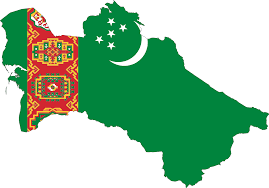Kyrgyzstan has published the text of a letter by President Sadyr Japarov to U.S. Secretary of State Anthony Blinken, in which the Central Asian nation’s leader accused the United States of interfering in his country’s internal affairs, RFE/RL reported.
On February 9, the Kyrgyz Foreign Ministry said minister Jeenbek Kulubaev met with the U.S. Ambassador to Kyrgyzstan Lesslie Viguerie and handed over Japarov’s response to a letter by Blinken that reportedly expressed concern over ongoing discussions by Kyrgyz lawmakers of a controversial bill that would allow authorities to register organizations as “foreign representatives,” legislation that critics say mirrors repressive Russian laws on “foreign agents.”
“I have to note with regret that the content of your letter has signs of interference in the internal affairs of our state,” Japarov’s letter — published by his spokesman Askat Alagozov — said.
“Today, there are tens of thousands of nongovernmental/nonprofit organizations that are successfully working throughout Kyrgyzstan,” the letter continued, adding that there is “a problem directly related to the protection of the legitimate interests of the Kyrgyz state.”
Japarov also wrote that the bill in question “is close to the current Foreign Agents Registration Act (FARA) adopted in the U.S.A. in 1938.”
FARA is only triggered when an entity or an individual engages in political activity in the United States.
According to Japarov, some groups in his country that receive funds from abroad “often disseminate false and unreliable information.”
In his letter, Japarov closes by saying his country is “ready to work” with the United States, adding: “My only request — not to interfere in the internal affairs of our country.”
Last month, the Kyrgyz parliament’s committee for constitutional laws approved the bill in question in the first reading. Further discussion of the controversial draft law is pending.
According to the draft, noncommercial organizations and media outlets that receive foreign funding and are engaged in broadly defined “political” activities will be obliged to report about their activities to the authorities. The legislation will also introduce wide oversight powers by the authorities and potential criminal sanctions for undefined criminal offences.
Dozens of nongovernmental organizations in Kyrgyzstan and international rights watchdogs have called on Kyrgyz lawmakers to reject the bill, insisting that it could be used by the authorities to discredit those labeled as “foreign representatives” and to stifle dissent.




